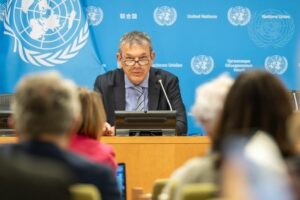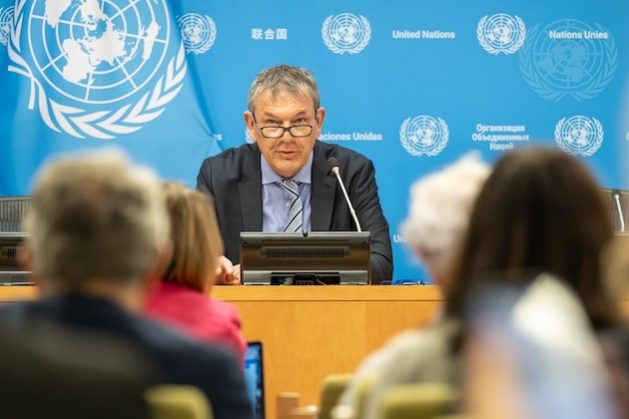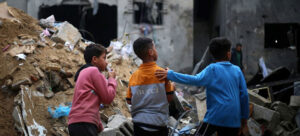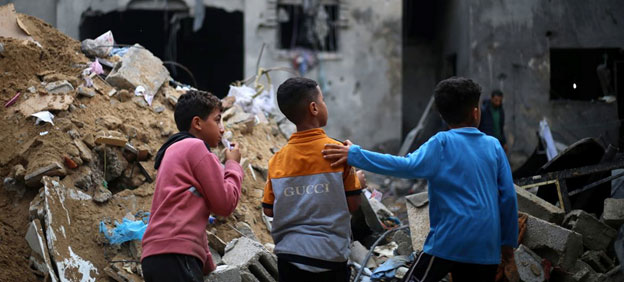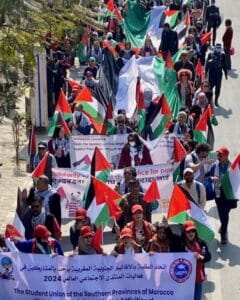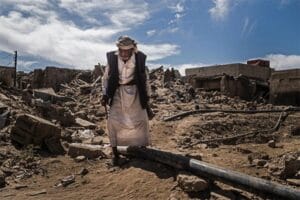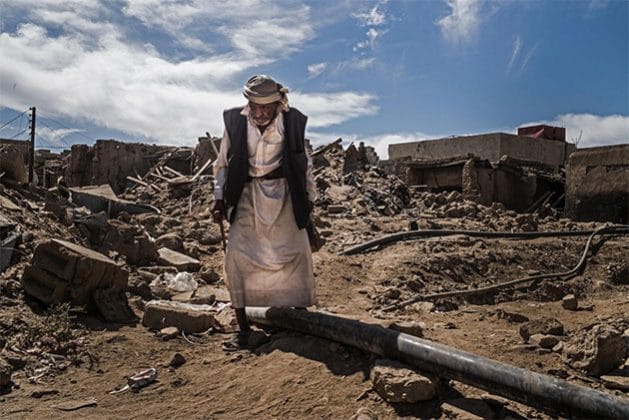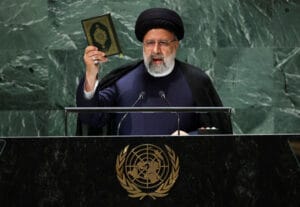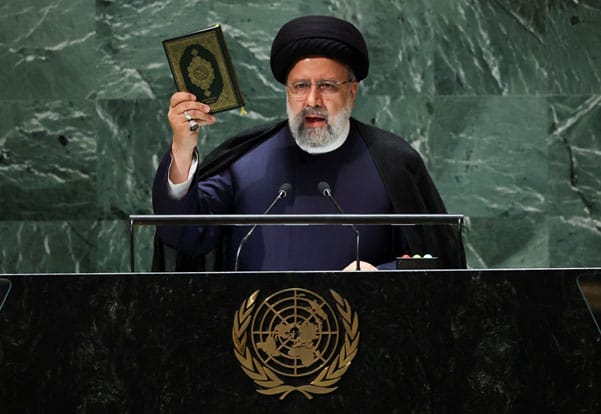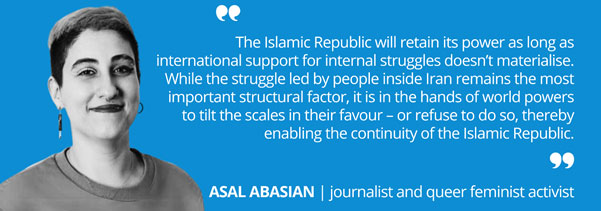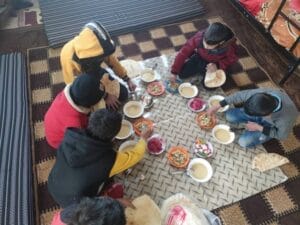
Active Citizens, Aid, Armed Conflicts, Child Labour, Civil Society, Development & Aid, Education, Featured, Headlines, Human Rights, Human Trafficking, Humanitarian Emergencies, Middle East & North Africa, Population, Poverty & SDGs, Sustainable Development Goals, TerraViva United Nations, Youth
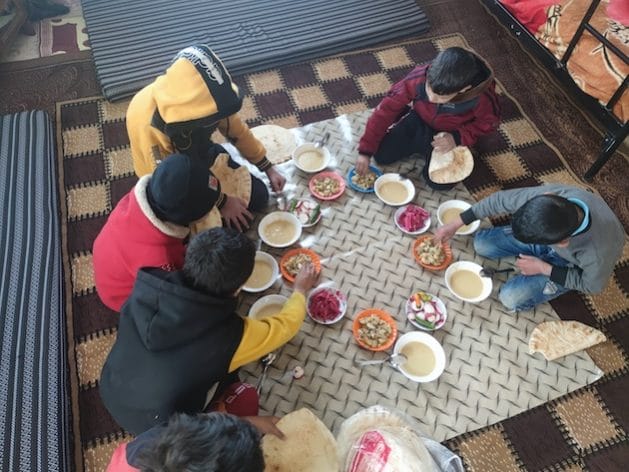
Children eating and drinking at the Children’s House in Idlib. Abandoned children is a growing issue in the region. Credit: Sonia Al-Ali/IPS
– Wael Al-Hassan was returning from work in the Syrian city of Harim when he heard the sound of a baby crying.
He was returning from work on December 10, 2023. He stopped momentarily, turned on his mobile phone flashlight to investigate, and spotted a baby girl, around one month old, wrapped in a white blanket, lying by the roadside.
He felt saddened by the infant’s condition and said, “She was crying loudly, and I saw scratches on her face from cat or dog claws. I then carried her in my arms and took her home, where my wife breastfed her, changed her clothes, and took care of her.”
The phenomenon of abandoning newborns is increasing in northern Syria, where individuals leave their newborns in public parks or alongside roads, then leave the area. Passersby later find the infants, some of them dead from hunger or cold.
Al-Hassan said that the next morning, he handed the baby girl over to the police to search for her family and relatives.
Social Rejection
Social worker Abeer Al-Hamoud from the city of Idlib, located in northern Syria, attributes the primary reason for some families abandoning their children to the widespread poverty and high population density in the province. Additionally, there is fear of the security situation (the area is not in the control of the Syrian regime and is often under attack), the prevalence of divorces, and spouses abandoning their families after traveling abroad.
Al-Hamoud also points out another reason, which is the spread of the phenomenon of early marriage and marrying girls to foreign fighters who came from their countries to Syria to participate in combat. Under pressure from their families, wives often have to abandon their children after their husband’s death, sudden disappearance, or return to their homeland, especially when they are unable to care for them or provide for them financially. Moreover, these children have no proper documentation of parentage.
Furthermore, Al-Hamoud mentions another reason, which is some women are raped, leading them to abandon their newborns out of fear of punishment from their families or societal stigma.
Al-Hamoud warns that the number of abandoned children is increasing and says there is an urgent need to find solutions to protect them from exploitation, oppression, and societal discrimination they may face. She emphasizes that the solutions lie in returning displaced persons to their homes, improving living conditions for families, raising awareness among families about the importance of family planning, and launching campaigns to integrate these children into society.
Alternative Families
It’s preferable for members of the community to accept these children into their families, but they face difficulties in registering the births.
Thirty-nine-year-old Samaheer Al-Khalaf from the city of Sarmada in northern Idlib province, Syria, sponsored a newborn found abandoned at a park gate, and she welcomed him into her family.
She says, “After 11 years of marriage to my cousin, we were not blessed with children, so we decided to raise a child found in the city at the beginning of 2022.”
Al-Khalaf observes that the Islamic religion’s prohibition on “adoption” prevents her from registering the child under her name in the civil registry. Additionally, she cannot go to areas controlled by the Syrian regime to register him due to the presence of security barriers.
She says, “I fear for this child’s future because he will remain of unknown lineage. He will live deprived of his civil rights, such as education and healthcare, and he won’t be able to obtain official documents.”
Children’s House Provides Assistance
With the increasing numbers of children of unknown parentage, volunteers have opened a center to receive and care for the children abandoned by their families.
Younes Abu Amin, the director of Children’s House, says, “A child of unknown parentage is one who was found and whose father is unknown, or children whose parentage has not been proven and who have no provider.”
“The organization ‘Children’s House’ opened a center to care for children separated from their families and children of unknown parentage in the city of Sarmada, north of Idlib,” says Abu Amin. “The number of registered children in the center has reached 267, ranging in age from one day to 18 years. Some have been placed with foster families, while others currently reside in the center, receiving all their needs, including shelter, food, education, and healthcare.”
Upon arrival at the center, Abu Amin notes that the center registers each child in its records, transfers them to the shelter department, and makes efforts to locate their original family or relatives and send them to them or to find a foster family to provide them with a decent life.
Abu Amin explains that the center employs 20 staff members who provide children with care, psychological support, and education. They work to create a suitable environment for the children and support them psychologically to help with emotional support.
He emphasizes that the center survives on individual donations to cover its expenses – which are scarce. There is an urgent need for sufficient support, as the children require long-term care, especially newborns.
A young girl Marah (8) and her brother, Kamal (10), lost their father in the war. Their mother remarried, leaving them to live in a small tent with their grandfather, who forces them to beg and sell tissues, often leaving them without food for days.
Consequently, they decided to escape from home. Kamal says, “We used to sleep outdoors, overwhelmed by fear, cold, and hunger, until someone took us to the child center.”
Upon reaching the center, they returned to their studies, played with other children, and each other, just like children with families.
Kamal expresses his wish, “I hope to continue my education with my sister so we can rely on ourselves and escape from a life of injustice and deprivation.”
These children, innocent of any wrongdoing, are often left to fend for themselves, bearing the brunt of war-induced poverty, insecurity, homelessness, instability, and early marriage.
IPS UN Bureau Report

